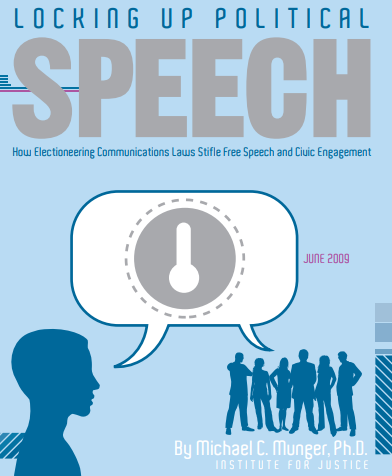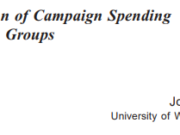Under the guise of campaign finance “reform,” government regulation of political speech has spread far beyond the mere financing of campaigns to monitor and control everyday political speech by ordinary citizens. The latest wave of such regulation is state and federal laws targeting so-called “electioneering communications.” The term is most closely associated with the federal Bipartisan Campaign Reform Act of 2002, and describes broadcast ads that merely mention a federal candidate and that air shortly before an election. Soon after the U.S. Supreme Court upheld that law, states began to follow suit. Fifteen states now have “electioneering communications” laws, and more are considering them, and most of those laws impose more onerous requirements and cover more political speech than the federal law.
Locking Up Political Speech: How Electioneering Communications Laws Stifle Free Speech and Civic Engagement














